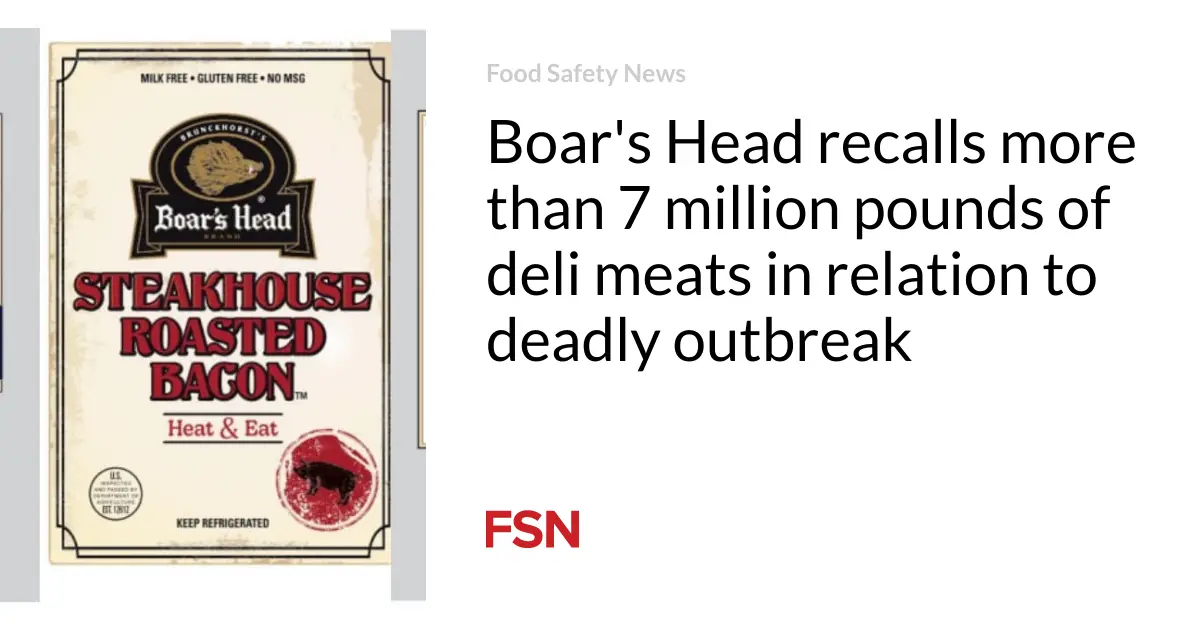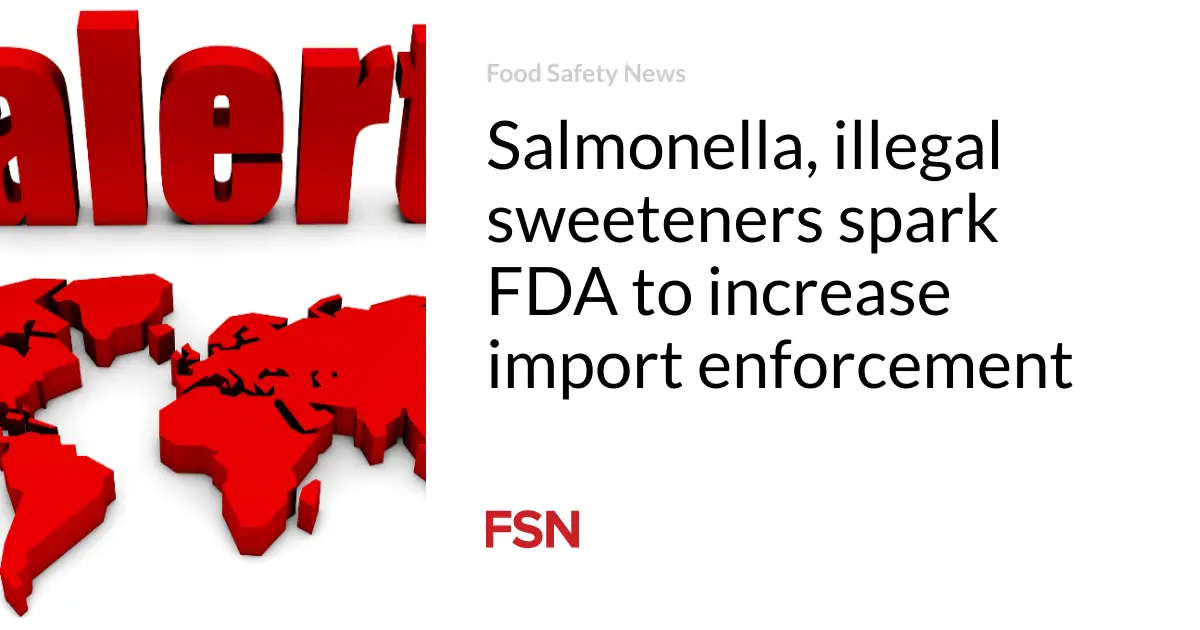
After whole genome sequencing showed a sample of Boar’s Head deli meat was contaminated with the outbreak strain responsible for a deadly Listeria outbreak, the company expanded its recall to include an additional 7 million pounds of products.
The Jarratt, VA, company announced the expanded recall on July 30. The recall now covers all liverwurst product produced by the establishment that is currently available in commerce because it may be adulterated withListeria monocytogenes, the U.S. Department of Agriculture’s Food Safety and Inspection Service (FSIS) announced.
The company is also recalling additional deli meat products that were produced on the same line and on the same day as the liverwurst and, therefore, may be adulterated with Listeria. The company had previously recalled 200,000 pounds of products.
The ready-to-eat liverwurst products were produced between June 11, 2024, and July 17, 2024, and have a 44-day shelf life. Click here to view labels. The following liverwurst products are subject to recall.
- 3.5-lb. loaves in plastic casing, or various weight packages sliced in retail delis, containing “Boar’s Head Strassburger Brand Liverwurst MADE IN VIRGINIA.” The products shipped to retailers bear sell by dates ranging July 25, 2024, to Aug. 30, 2024, printed on the side of the packaging.
The other ready-to-eat deli meat products were produced on June 27, 2024. The following deli meat products are subject to recall:
- 9.5-lb. and 4.5-lb. full product, or various weight packages sliced in retail delis, containing “Boar’s Head VIRGINIA HAM OLD FASHIONED HAM” with sell by date “AUG 10” on the product packaging.
- 4-lb., or various weight packages sliced in retail delis, containing “Boar’s Head ITALIAN CAPPY STYLE HAM” with sell by date “AUG 10” on the product packaging.
- 6-lb., or various weight packages sliced in retail delis, containing “Boar’s Head EXTRA HOT ITALIAN CAPPY STYLE HAM” with sell by date “AUG 10” on the product packaging.
- 4-lb., or various weight packages sliced in retail delis, containing “Boar’s Head BOLOGNA” with sell by date “AUG 10” on the product packaging.
- 2.5-lb., or various weight packages sliced in retail delis, containing “Boar’s Head BEEF SALAMI” with sell by date “AUG 10” on the product packaging.
- 5.5-lb., or various weight packages sliced in retail delis, containing “Boar’s Head STEAKHOUSE ROASTED BACON HEAT & EAT” with sell by date “AUG 15” on the product packaging.
- 3-lb., or various weight packages sliced in retail delis, containing “Boar’s Head GARLIC BOLOGNA” with sell by date “AUG 10” on the product packaging.
- 3-lb., or various weight packages sliced in retail delis, containing “Boar’s Head BEEF BOLOGNA” with sell by date “AUG 10” on the product packaging.
The products subject to recall were distributed to retail deli locations nationwide. The products shipped to deli retailers bear establishment number “EST. 12612” inside the USDA mark of inspection on the product labels.
The problem was discovered when FSIS was notified that a sample collected by the Maryland Department of Health tested positive for Listeria monocytogenes. The Maryland Department of Health, in collaboration with the Baltimore City Health Department, collected an unopened liverwurst product from a retail store for testing as part of an outbreak investigation of. Further testing is ongoing to determine if the product sample is related to the outbreak.
The FSIS is working with the Centers for Disease Control and Prevention and state public health partners to investigate the multistate outbreak of Listeria infections linked to meats sliced at delis.
As of July 25, officials have identified 34 sick people in 13 states, including 33 hospitalizations and two deaths.
About Listeria infections
Food contaminated with Listeria monocytogenes may not look or smell spoiled but can still cause serious and sometimes life-threatening infections. Anyone who has eaten any recalled product and developed symptoms of Listeria infection should seek medical treatment and tell their doctors about the possible Listeria exposure.
Also, anyone who has eaten any of the recalled products should monitor themselves for symptoms during the coming weeks because it can take up to 70 days after exposure to Listeria for symptoms of listeriosis to develop.
Symptoms of Listeria infection can include vomiting, nausea, persistent fever, muscle aches, severe headache, and neck stiffness. Specific laboratory tests are required to diagnose Listeria infections, which can mimic other illnesses.
Pregnant women, the elderly, young children, and people such as cancer patients who have weakened immune systems are particularly at risk of serious illnesses, life-threatening infections, other complications and death. Although infected pregnant women may experience only mild, flu-like symptoms, their infections can lead to premature delivery, infection of the newborn, or even stillbirth.
(To sign up for a free subscription to Food Safety News,click here)







